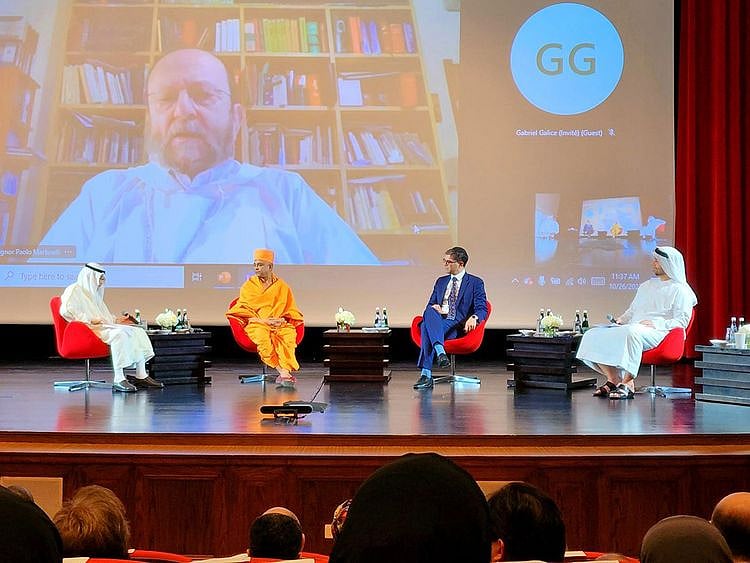UAE model is blueprint for world peace, ‘Religious Diplomacy’ conference hears
Faith leaders, ministers highlight country’s success story in finding unity in diversity

Abu Dhabi: The UAE has exerted tremendous effort to develop dialogue among religions, and its model of coexistence should be studied further and then shared with the world, panellists said at a conference in the capital on Wednesday.
He was speaking at the Anwar Gargash Diplomatic Academy conference on ‘Religious Diplomacy’, which saw faith leaders interact with diplomats and government leaders about the need for greater interreligious understanding in a globalised world.
UAE’s efforts
The UAE’s efforts to promote dialogue and coexistence are visible in the many houses of worship within the nation, and the people of multiple faiths that live and work alongside one another. Other unassailable examples are the Document on Human Fraternity, endorsed by the Catholic Church and Grand Imam of Al Azhar, speakers said at the conference.
Omar Ghobash, Assistant Minister of Foreign Affairs and International Cooperation for Culture and Public Diplomacy, and UAE Ambassador to the Holy See, said: “[In addition], we’ve got the Abrahamic family house coming up, which is an amazing project. We’ve [already] got the Human Fraternity document with the Catholic church. And we have thriving religious communities, and connectivity with the world.”
Respect for heritage
In a world of exclusive political alliances, the UAE must continue spearheading dialogues between various faiths, while also highlighting the importance of religious diplomacy as a powerful tool.
Nickolay Mladenov, director-general at the Anwar Gargash Diplomatic Academy, said: “The basis for the UAE’s policy on tolerance is an acceptance of diversity but also the respect for heritage. We need to acknowledge that this is a world in which there is far more identity politics than before, we need to find a way to bring out the voice of faith leaders, and begin this dialogue between faiths.”
Skills development
Yet, this is not necessarily an easy next step, with Mladenov saying that many more people need to be trained to pursue diplomacy supported by religion. “The world is just scratching the surface now in what we need to develop in terms of skills, and in terms of exchanging pro-actively for the dialogue between faiths...,” the expert said.
Brahmavihari Swami, head of upcoming BAPS Hindu Mandir in Abu Dhabi, and international coordinator of the BAPS Organisation, also called on faith leaders to visit and understand other faith traditions. Speaking at the conference, he commended how the UAE had invited Hindu monks to visit the Sheikh Zayed Grand Mosque in efforts to promote religious understanding and coexistence.
Sign up for the Daily Briefing
Get the latest news and updates straight to your inbox
Network Links
GN StoreDownload our app
© Al Nisr Publishing LLC 2026. All rights reserved.